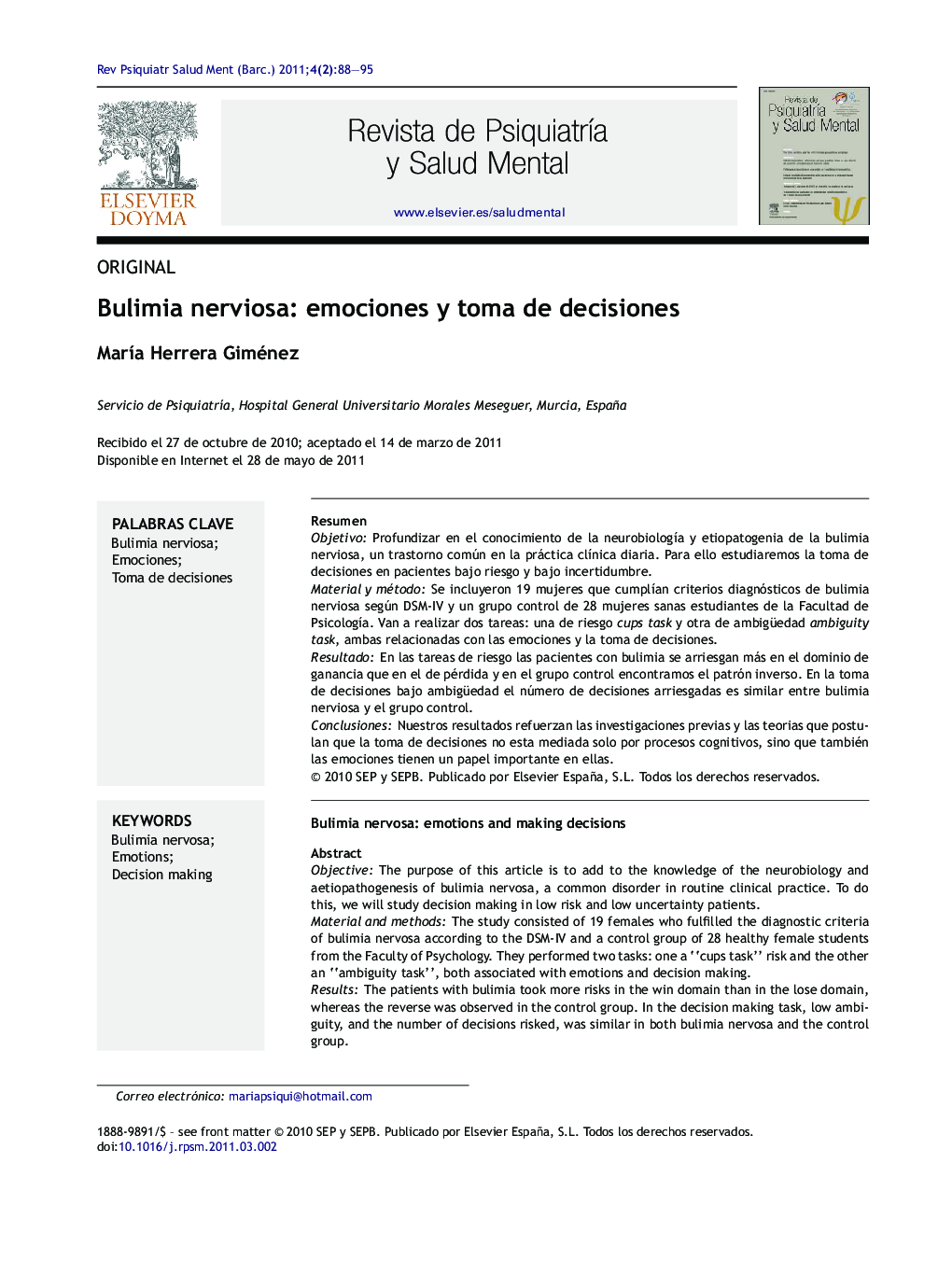| Article ID | Journal | Published Year | Pages | File Type |
|---|---|---|---|---|
| 4191360 | Revista de Psiquiatría y Salud Mental | 2011 | 8 Pages |
ResumenObjetivoProfundizar en el conocimiento de la neurobiología y etiopatogenia de la bulimia nerviosa, un trastorno común en la práctica clínica diaria. Para ello estudiaremos la toma de decisiones en pacientes bajo riesgo y bajo incertidumbre.Material y métodoSe incluyeron 19 mujeres que cumplían criterios diagnósticos de bulimia nerviosa según DSM-IV y un grupo control de 28 mujeres sanas estudiantes de la Facultad de Psicología. Van a realizar dos tareas: una de riesgo cups task y otra de ambigüedad ambiguity task, ambas relacionadas con las emociones y la toma de decisiones.ResultadoEn las tareas de riesgo las pacientes con bulimia se arriesgan más en el dominio de ganancia que en el de pérdida y en el grupo control encontramos el patrón inverso. En la toma de decisiones bajo ambigüedad el número de decisiones arriesgadas es similar entre bulimia nerviosa y el grupo control.ConclusionesNuestros resultados refuerzan las investigaciones previas y las teorias que postulan que la toma de decisiones no esta mediada solo por procesos cognitivos, sino que también las emociones tienen un papel importante en ellas.
ObjectiveThe purpose of this article is to add to the knowledge of the neurobiology and aetiopathogenesis of bulimia nervosa, a common disorder in routine clinical practice. To do this, we will study decision making in low risk and low uncertainty patients.Material and methodsThe study consisted of 19 females who fulfilled the diagnostic criteria of bulimia nervosa according to the DSM-IV and a control group of 28 healthy female students from the Faculty of Psychology. They performed two tasks: one a “cups task” risk and the other an “ambiguity task”, both associated with emotions and decision making.ResultsThe patients with bulimia took more risks in the win domain than in the lose domain, whereas the reverse was observed in the control group. In the decision making task, low ambiguity, and the number of decisions risked, was similar in both bulimia nervosa and the control group.ConclusionsOur results support those of previous investigations and theories that postulate that the making of decisions is not only mediated by cognitive processes, but the emotions also play an important role in these processes.
